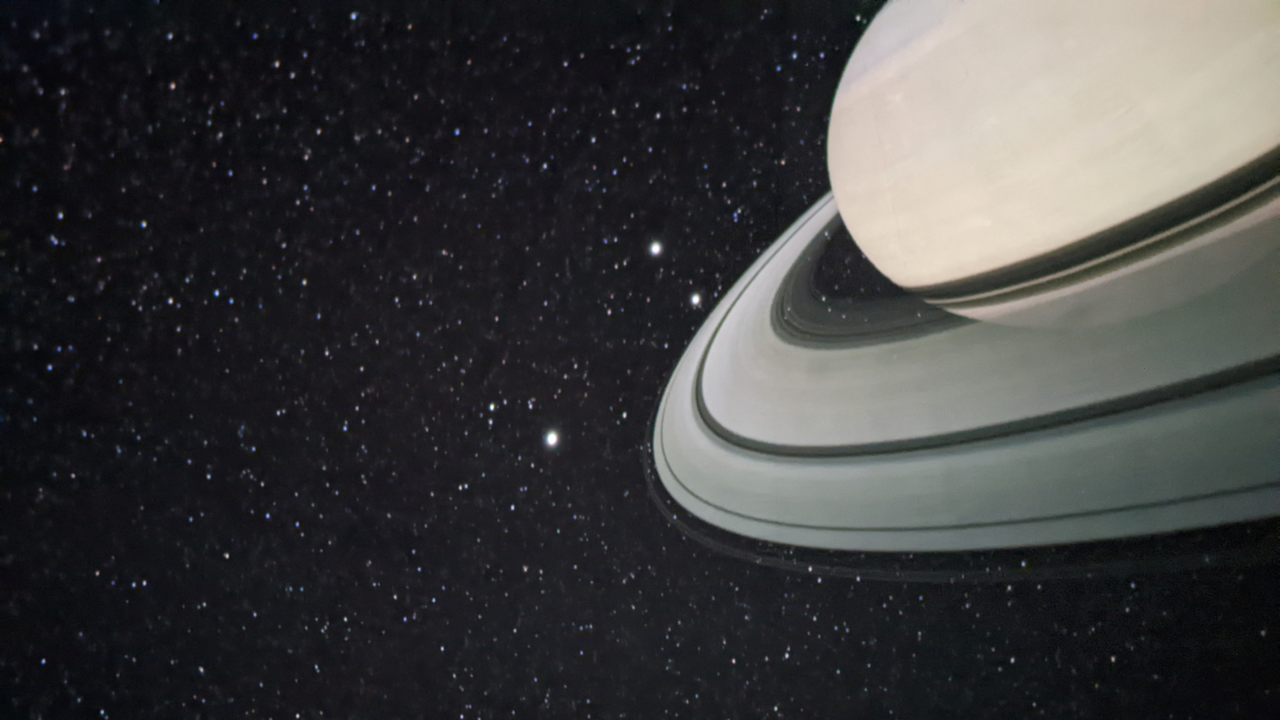
Celebrating five years of the Waterloo Centre for Astrophysics
Researchers at the WCA are pushing boundaries by exploring unchartered territory so we can better understand our world

Researchers at the WCA are pushing boundaries by exploring unchartered territory so we can better understand our world
By Katie McQuaid Faculty of ScienceFor the past five years, the Waterloo Centre for Astrophysics (WCA) has created a research-rich atmosphere where the sky is (literally) the limit. Thanks to a generous donation by Mike Lazaridis, which enables a Distinguished Research Chair in Astrophysics, the centre has become an exciting hub of activity nestled in the physics building at the University of Waterloo.
When you walk into the WCA offices, you can feel the buzz. The space is bright, inviting and almost always filled with people. Collaboration is a huge part of the WCA model and this space gives researchers somewhere to meet and work through things together.
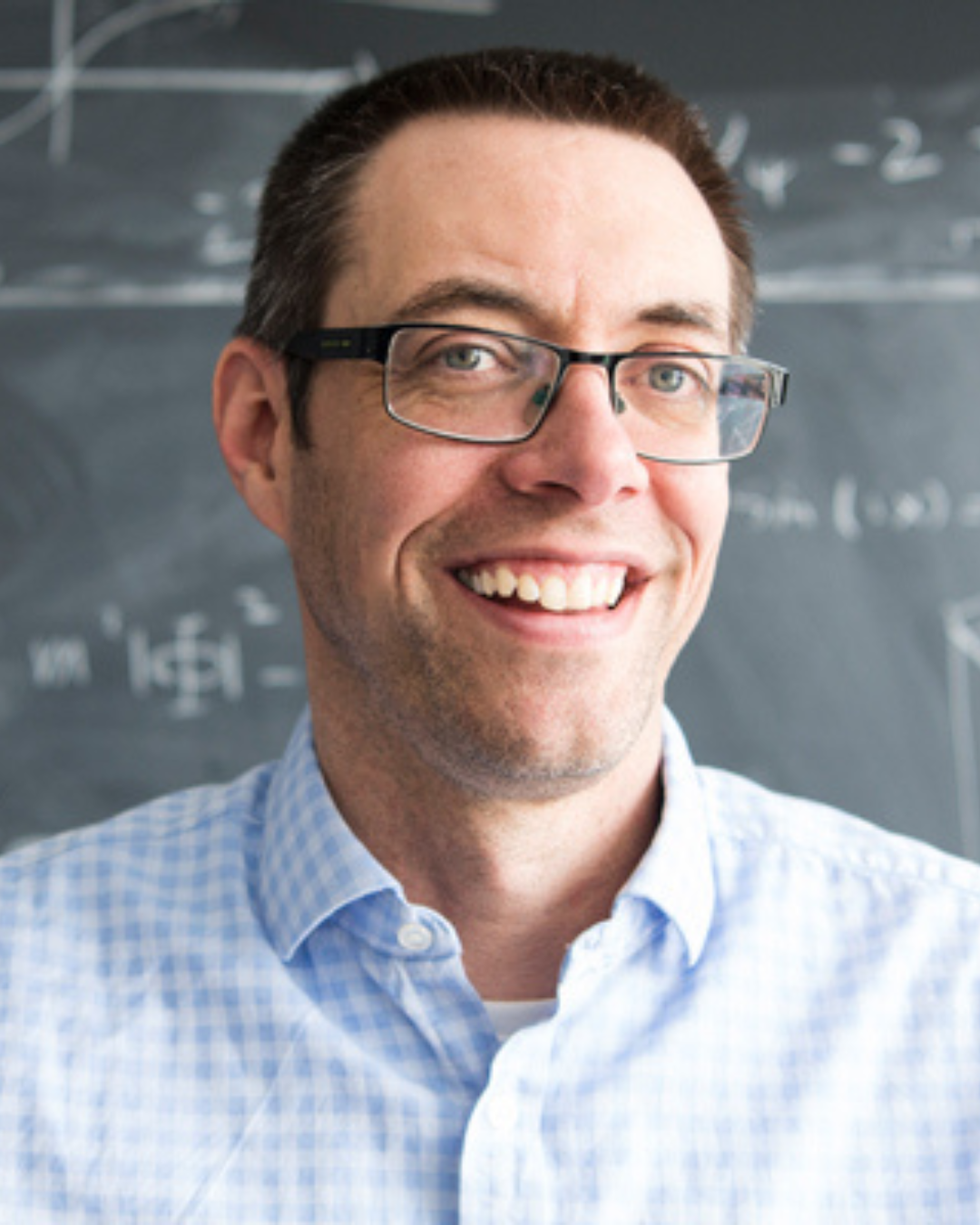 Will Percival, a professor and Distinguished Research Chair in Astrophysics and the director of the Waterloo Centre for Astrophysics.
Will Percival, a professor and Distinguished Research Chair in Astrophysics and the director of the Waterloo Centre for Astrophysics.
At one end of the hallway, you will find director Will Percival’s office. Along with his leadership of the WCA, he is also a professor in the Department of Physics and Astronomy with a passion for understanding the universe. Percival has just been renewed for a second term as director and is excited about what the next five years will bring.
“In the last five years, our researchers have been doing incredible work and they will have access to transformative data over the next few years,” Percival says. “We have created an environment here where young scientists are openly collaborating on their research which is leading to amazing discoveries.”
The WCA has also become a destination for those wanting to further their education and research. The centre currently has 11 faculty members, 43 graduate students and 15 postdoctoral fellows. The postdoctoral program receives more than 150 applications a year. Clearly, the WCA has become a place students and researchers want to be.
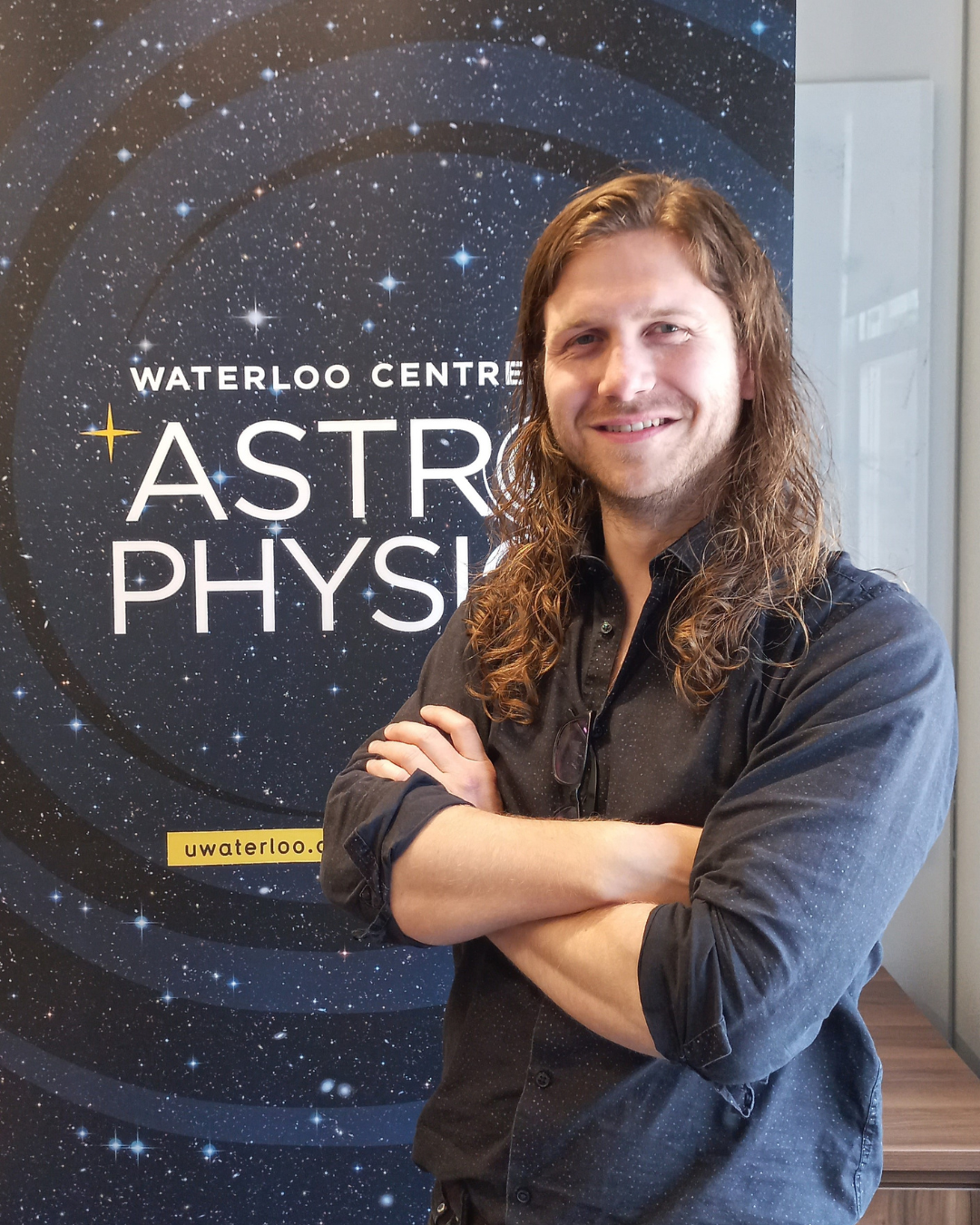 Roan Haggar: The Waterloo Centre for Astrophysics outreach coordinator.
Roan Haggar: The Waterloo Centre for Astrophysics outreach coordinator.
One of those people is postdoctoral fellow, Roan Haggar, who also happens to be the WCA’s outreach coordinator. When Haggar joined in 2022, he was given the important task of engaging with students and the community by putting together an outreach program that would get people involved with WCA.
Under Haggar’s leadership, the community outreach exploded. In the past year, the outreach team has engaged with more than 1,500 students, mostly through taking the WCA’s inflatable planetarium, the Astro-Bubble, to schools.
“One of the most fun parts of my job is taking the Astro-Bubble out into the community and seeing kids' faces when they watch the show,”Haggar says. “By sharing this technology, we are helping to ignite a passion for physics and astronomy in the next generation of future scientists and I love that.”
The outreach program also includes the Gustav Bakos Observatory, monthly WCA-KPL Astronomy Talks and Astronomy on Tap, where you can sit back, relax and learn about the universe over a pint.
When he’s not showing off the galaxy in the Astro-Bubble, Haggar’s research involves looking at galaxy clusters to see how they form and evolve. “I work a lot with computer simulations to see how we think the universe will change and compare it to the real universe in its current state.”
Along with the other researchers at the WCA, Percival and Haggar are delving into finding answers to huge questions about our universe and they don’t plan on stopping. Whether they are exploring dark matter, dark energy, black holes or mapping the unknown parts of our universe, the researchers at the WCA are pushing boundaries daily by exploring unchartered territory so we can better understand our world.
If you are interested in connecting with the outreach team, send an email to wca.outreach@uwaterloo.ca.
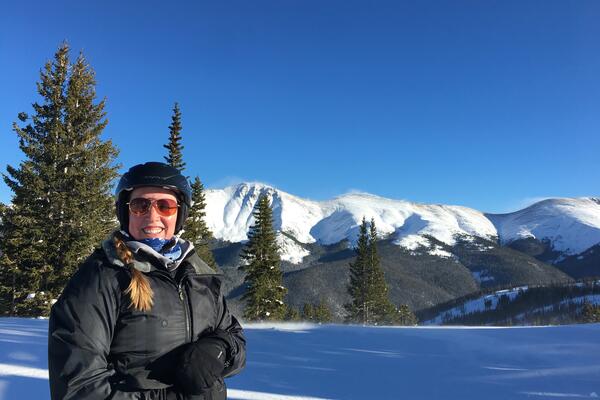
Read more
New evidence-based classification rules expand access and improve fairness for Para Cross Country and Para Alpine skiers
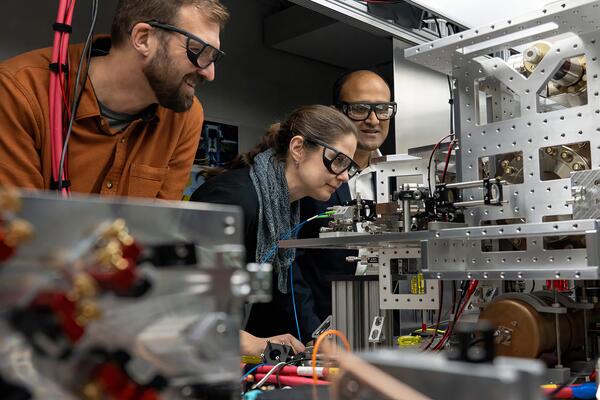
Read more
And a new model for how quantum research is shared — opening doors for the next generation of scientists and entrepreneurs

Read more
Here are the people and events behind some of this year’s most compelling Waterloo stories
The University of Waterloo acknowledges that much of our work takes place on the traditional territory of the Neutral, Anishinaabeg, and Haudenosaunee peoples. Our main campus is situated on the Haldimand Tract, the land granted to the Six Nations that includes six miles on each side of the Grand River. Our active work toward reconciliation takes place across our campuses through research, learning, teaching, and community building, and is co-ordinated within the Office of Indigenous Relations.